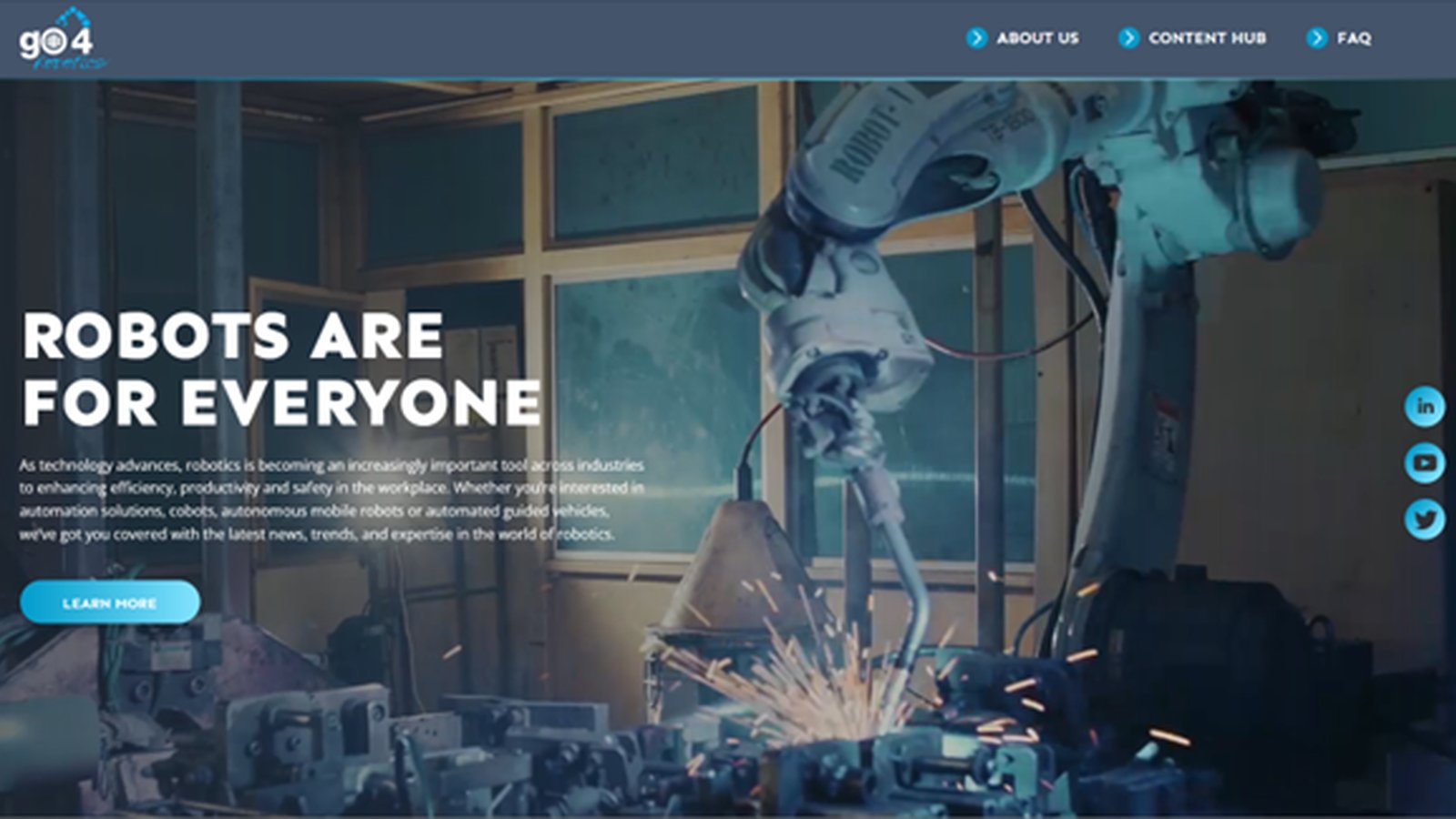Automated tools for efficiency are being adopted by various industries, resulting in improved productivity.

Credit: www.amygb.ai
Streamlining Operations With Automation
Various industries are embracing automation tools to enhance efficiency in their operations. From manufacturing and logistics to customer service and healthcare, businesses are streamlining processes to save time and resources. Automated tools have become an integral part of today’s modern workforce, improving productivity and optimizing performance.
How Automation Is Transforming Industries
Automation is revolutionizing the way industries operate, allowing businesses to streamline their operations and achieve unprecedented levels of efficiency. Automated tools and technologies are being widely adopted across various sectors, enabling organizations to optimize processes, reduce costs, and enhance productivity.
Let’s dive deeper into how automation is transforming industries and the impact it has on efficiency.
Impact Of Automated Tools On Efficiency
Automation has significantly influenced the efficiency of several industries by simplifying complex tasks and improving overall productivity. Here’s a closer look at some of the key impacts:
- Reduced errors and increased accuracy: By automating manual and repetitive tasks, industries can minimize human errors and achieve a higher level of accuracy in their processes. Automated tools ensure consistency and precision, leading to improved efficiency.
- Enhanced speed and time savings: The use of automated tools enables organizations to complete tasks at a much faster rate, significantly reducing turnaround times. By eliminating time-consuming manual processes and streamlining operations, industries can maximize their productivity and meet tight deadlines.
- Optimal resource allocation: Automation allows businesses to allocate resources more efficiently by eliminating the need for manual intervention in routine tasks. By automating repetitive processes, industries can reallocate their workforce to more value-added activities, leading to increased productivity and cost savings.
- Improved data management and analysis: Automated tools can efficiently handle large volumes of data, making it easier for industries to collect, analyze, and derive insights from their data. This enhanced data management capability enables informed decision-making, leading to improved operational efficiency and better outcomes.
- Enhanced customer experience: Automation not only optimizes internal processes but also has a significant impact on customer-facing activities. By automating customer support, order processing, and other related tasks, industries can enhance the overall customer experience, leading to increased satisfaction and loyalty.
- Scalability and growth: Automated tools provide industries with the scalability required to meet growing demands and adapt to changing market conditions. By streamlining operations and eliminating bottlenecks, automation empowers businesses to expand their operations without compromising efficiency.
Automation is transforming industries by revolutionizing processes, increasing efficiency, and driving growth. From reducing errors to enhancing speed and providing better data management capabilities, the impact of automated tools is far-reaching and essential for businesses seeking to stay ahead in today’s competitive landscape.
Embracing automation offers industries the opportunity to optimize their operations, improve efficiency, and drive success in an ever-evolving world.
Automation In Manufacturing And Assembly
Automation in manufacturing and assembly is being widely adopted across various industries to improve efficiency and productivity. With automated tools and processes, industries like automotive, electronics, and pharmaceuticals are streamlining their operations, reducing errors, and increasing output. Embracing automation has become crucial for staying ahead in today’s competitive market.
Revolutionizing Production Lines With Automation
Automation has completely transformed the manufacturing and assembly processes in various industries. With the adoption of automated tools, production lines have experienced a remarkable revolution. These tools have enhanced efficiency and productivity, allowing companies to meet the demands of the market more effectively.
Let’s explore the benefits of automated tools in manufacturing processes and understand how the integration of robotics and smart machines has revolutionized assembly lines.
Benefits Of Automated Tools In Manufacturing Processes
- Increased productivity: Automated tools can perform tasks at a much faster rate compared to manual labor, resulting in higher production output.
- Improved accuracy: By eliminating human errors, automated tools ensure consistently precise manufacturing processes and assembly.
- Cost savings: With automation, companies can reduce labor costs, as fewer workers are required to operate machines and perform repetitive tasks.
- Enhanced safety: Automated tools minimize the risk of accidents and injuries by handling dangerous or physically demanding tasks.
- Streamlined processes: Automation optimizes workflow by reducing bottlenecks and eliminating time-consuming manual processes.
Integration Of Robotics And Smart Machines In Assembly Lines
- Robotics in assembly: Robots have revolutionized assembly lines, performing tasks such as product assembly, quality control inspections, and packaging with outstanding precision and speed.
- Collaborative robots (cobots): These versatile robots work alongside human workers, improving efficiency and safety in assembly processes.
- Smart machines: Integration of artificial Intelligence (AI) and machine learning in assembly lines has enabled smart machines to identify and correct errors, optimize production, and adapt to changing demands.
- Internet of Things (IoT) in manufacturing: IoT devices and sensors gather data in real-time, enabling proactive maintenance, predictive analytics, and continuous process improvement.
Automation has revolutionized manufacturing and assembly across various industries. The adoption of automated tools has not only improved productivity and accuracy but also streamlined processes, reduced costs, and enhanced workplace safety. With the integration of robotics, smart machines, and IoT technologies, the manufacturing sector continues to evolve, paving the way for more efficient and sustainable production lines.
Automated Solutions In Customer Service
Discover how industries across various sectors are embracing automated solutions to enhance customer service efficiency. With the adoption of automated tools, businesses can streamline processes and provide quick, accurate support, leading to improved customer satisfaction and retention. Experience the power of automation in industries like healthcare, finance, retail, and more.
Enhancing Customer Experiences Through Automation
Automated solutions are revolutionizing the way customer service is provided, leading to enhanced customer experiences across various industries. By leveraging advanced technologies, businesses can streamline their customer service processes, resulting in improved efficiency and satisfaction levels. Let’s delve into the role of automation in customer service and explore how it is transforming the industry.
Role Of Chatbots And Virtual Assistants In Customer Service
- Chatbots and virtual assistants have become indispensable assets in delivering excellent customer service. These intelligent tools offer a range of benefits, including:
- Quick and efficient response times: Chatbots and virtual assistants can instantly address customer inquiries and provide relevant information, reducing the time customers have to wait.
- Round-the-clock availability: With automation, businesses can offer 24/7 customer support, ensuring that customers can access assistance whenever they need it.
- Personalized interactions: Advanced algorithms enable chatbots and virtual assistants to understand customer preferences and tailor their responses accordingly, creating a personalized experience for each customer.
- Scalability: Automated tools can handle multiple interactions simultaneously, making them ideal for businesses catering to a large customer base.
Automating Customer Inquiries And Support Processes
Automating customer inquiries and support processes can significantly enhance efficiency and effectiveness, benefiting both businesses and customers. Here are some key aspects of automation in customer service:
- Self-service options: By implementing self-service portals and knowledge bases, businesses empower customers to find solutions to their problems independently. This not only reduces the workload on customer service teams but also provides customers with a quick and convenient way to get answers.
- Automated ticketing systems: Automation helps in categorizing and prioritizing customer inquiries, ensuring that they are promptly directed to the appropriate department or agent. This eliminates the need for manual sorting and enables faster response times.
- Streamlined workflows: Automation tools can automate routine tasks, such as order status updates or appointment reminders. This frees up customer service agents to focus on complex queries or issues that require a human touch.
Embracing automated solutions in customer service is a game-changer for businesses across industries. By leveraging chatbots, virtual assistants, and automating support processes, businesses can enhance customer experiences, increase efficiency, and drive customer satisfaction. Remember, in today’s competitive world, delivering outstanding customer service can make all the difference.
Frequently Asked Questions On What Industries Are Adopting Automated Tools For Efficiency?
What Industries Could Benefit From Automation?
Automation benefits various industries such as manufacturing, logistics, healthcare, agriculture, and customer service.
What Industries Have The Highest Potential For Automation?
The industries with the highest potential for automation are manufacturing, transportation, healthcare, and retail.
What Industries Have Applied Automation Systems?
Industries such as manufacturing, logistics, healthcare, and retail have embraced automation systems.
What Are The 5 Types In Automated Manufacturing?
The 5 types in automated manufacturing include robotics, computer numerical control (CNC), assembly line, 3D printing, and smart factories.
Conclusion
As we have explored in this blog post, numerous industries are embracing automated tools to enhance efficiency and streamline operations. The manufacturing sector is leveraging robotics and machine learning algorithms to optimize production processes, reduce errors, and increase output. In finance, automated tools are revolutionizing processes like data analysis, fraud detection, and customer service, ensuring faster and more accurate results.
The healthcare industry is automating tasks like patient record management, appointment scheduling, and inventory management, enabling medical professionals to focus on providing quality care. Industries such as retail and e-commerce are utilizing automated tools for inventory tracking, supply chain management, and personalized customer experiences.
Automation is even making its way into creative fields, with marketers adopting AI-powered tools for content creation and optimization. The adoption of automated tools is not limited to specific industries, but rather spans across various sectors, driven by the need for improved efficiency and productivity.
Embracing automation can help businesses stay competitive in today’s evolving digital landscape and transform the way they operate.


